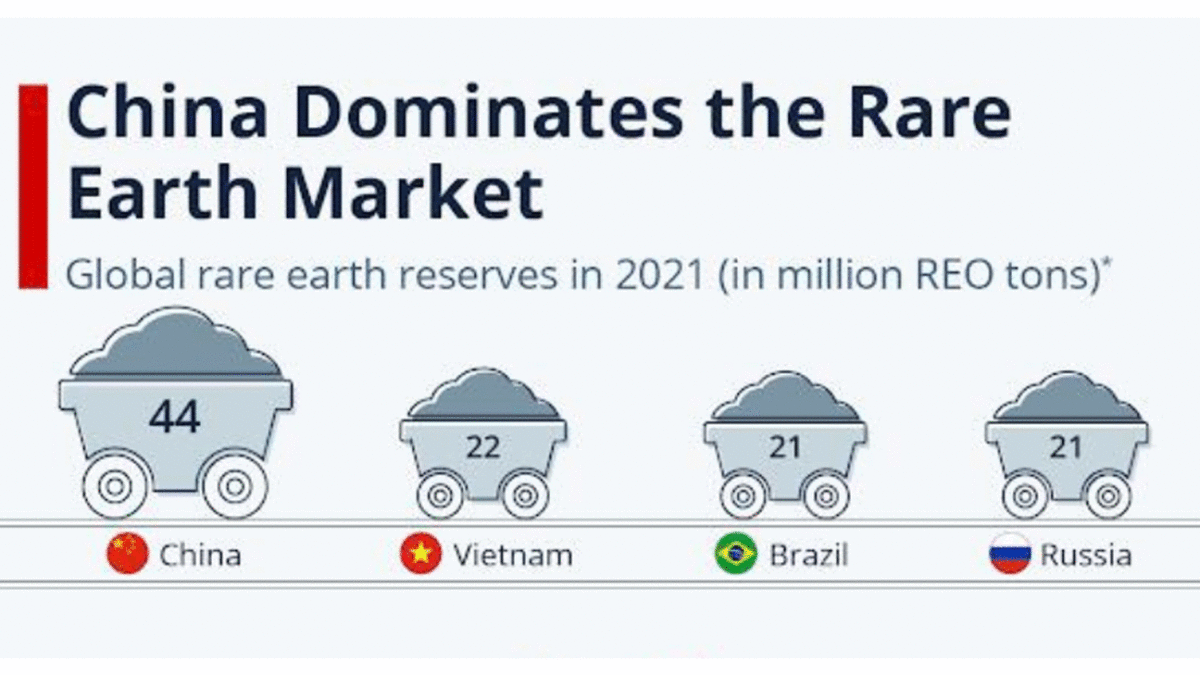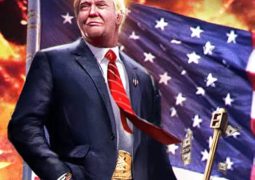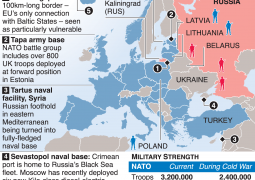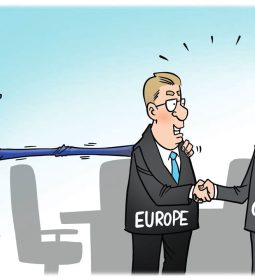China imposes rare metal export ban over US ban on chips export

China hits out at latest US effort to block Beijing’s access to chip technology
By Julianna Liu and Sean Lyngaas
The new measures, unveiled by the outgoing Biden administration, have raised the political temperature between the world’s top two economies ahead of the imminent inauguration of President-elect Donald Trump. Chinese leader Xi Jinping has made self-sufficiency a major pillar of his economic strategy to make China a tech superpower.

On Monday, the US Commerce Department announced curbs on the sale of two dozen types of semiconductor-making equipment and restrictions on numerous Chinese companies from accessing American technology.
The goal of the new controls, US Commerce Department officials said, was to slow China’s development of advanced AI tools that can be used in war and to undercut the country’s homegrown semiconductor industry, which threatens the national security of the US and its allies.
China’s Commerce Ministry condemned the move, accusing the US of “abuse” of export controls and posing “a significant threat” to the stability of global industrial and supply chains.
“The US preaches one thing while practicing another, excessively broadening the concept of national security, abusing export control measures, and engaging in unilateral bullying actions. China firmly opposes such actions,” the ministry said in a Monday statement.

A day later, it banned outright the sale of a number of materials crucial for the production of semiconductors and electric vehicle batteries to the US. The export of gallium, germanium, antimony and other “super hard” materials will not be permitted because they may be used for military purposes, according to the ministry.
China had restricted the sale of some of these materials last year, as the tech rivalry between the two sides escalated. However, there was previously an option for companies to apply for special permits to export to the US, a loophole that now appears to be closed.
The race for an edge in military technology has shaped US-China relations amid growing US concerns about a potential Chinese invasion of Taiwan in the coming years. China’s ruling Communist Party, which claims the self-ruled democratic island as its own territory despite never having controlled it, has adopted an increasingly aggressive stance toward Taiwan in recent years.
‘Strongest ever’ controls
Senior US officials have also accused China of outright stealing American-made AI software, which Beijing denies.
“They’re the strongest controls ever enacted by the US to degrade the PRC’s ability to make the most advanced chips that they’re using in their military modernization,” Secretary of Commerce Gina Raimondo told reporters Sunday, using the acronym for the country’s official name, the People’s Republic of China.
The new rules include restrictions on the sale of of high bandwidth memory chips, which are critical for high-end applications such as generative AI training, plus fresh software and technology controls.
Monday’s announcement is the third round of export restrictions imposed on Beijing by the Biden administration in as many years. Last October, the Commerce Department reduced the types of semiconductors that American companies can sell to China, citing the desire to close loopholes in regulations announced in 2022.
In September, the Commerce Department separately proposed a ban on the sale or import of smart vehicles that use specific Chinese or Russian technology, citing security concerns. The incoming Trump administration has also talked tough on China, including by threatening tariffs.

For its part, China is intensifying its goal to dominate advanced technologies of the future. In May, Beijing announced plans to set up its largest-ever semiconductor state investment fund worth $47.5 billion.
With investments from six of the country’s largest state-owned banks, including ICBC and China Construction Bank, the fund underscores Xi’s push to bolster China’s position as a tech giant.
- Previous China and Phillipines clash again over islands in South China Sea
- Next Guitar player South Korean president has no guts: Martial law failed



















